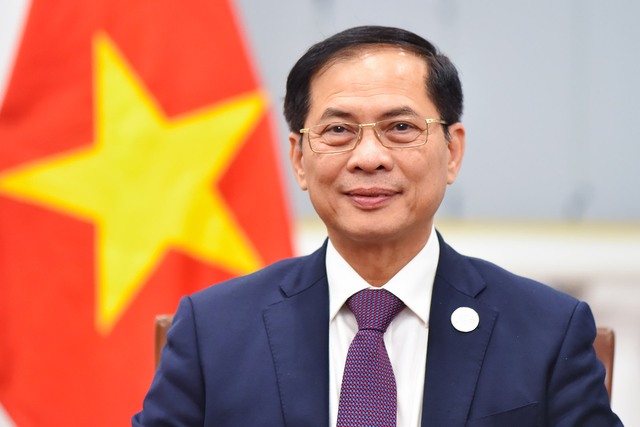Major takeaways from General Secretary To Lam's four-nation tour
VGP - Deputy Prime Minister and Foreign Minister Bui Thanh Son has highlighted the significance and major outcomes of General Secretary To Lam's tour to Kazakhstan, Azerbaijan, Russia and Belarus.

Deputy Prime Minister and Foreign Minister Bui Thanh Son
Regarding the significance of the tour, Bui said the tour has opened up a new chapter of cooperation while consolidating, renewing and repositioning the relations between Viet Nam and these countries on the basis of long-lasting friendships that have been nurtured by generations of leaders and people of Viet Nam and the four countries.
The tour was also a special occasion to convey the message of the consistent and loyal affections of the Party, State and people of Viet Nam towards the countries that have wholeheartedly supported the cause of national liberation and unification in the past as well as the cause of national construction and development of Viet Nam today.
The high-ranking leaders and people of these countries have given General Secretary To Lam, his Spouse and the high-ranking delegation of Viet Nam sincere affections, a warm and respectful welcome with many exceptions.
General Secretary To Lam engaged in more than 80 events during his eight-day tour, notably his meetings with top leaders of these countries and his participation at the 80th anniversary of the Victory Day in Kazakhstan and Russia, reflecting the fact that Viet Nam appreciates and honor the great sacrifices and losses of former Soviet Union countries in the fight against fascism, ending the world war and opening up a new page in the history for the revolutionary and national liberation movements around the world.
Major outcomes
First, the tour was an evidence of Viet Nam's effort to realize the foreign policy of independence, self-reliance, peace, friendship, cooperation and development; diversification and multi-lateralization of external relations, and active ad proactive international integration; being a trusted friend and partner and an active and responsible member of the international community, which was adopted at the 13th National Party Congress.
Viet Nam upgraded bilateral ties to strategic partnership with Kazakhstan, Azerbaijan and Belarus, raising the number of strategic partnerships to 37, while deepening the Comprehensive Strategic Partnership with Russia.
Second, General Secretary To Lam and top leaders of these countries affirmed that they attach importance and place high priority to the traditional friendships that have stood firmly in the past struggle for national independence and the current course of national development despite historical ups and downs. This spirit was the mainstream during the summit meetings between General Secretary To Lam and Kazakhstani President Kassym – Jomart Tokayev, Azerbaijani President Inham Aliyev, Russsian President Vladimir Putin, and Belarussian President Aleksandr Lukashenko.
Third, the aforesaid summit meetings were productive, helping to shape the bilateral ties between Viet Nam and these countries in the time to come, creating new momentum for cooperation in both traditional areas and new fronts commensurate with the newly established partnership frameworks.
Fourth, General Secretary To Lam and leaders of these countries agreed to further strengthen political trust through delegation exchanges and contacts at all levels and across all channels.
The leaders affirmed the important role of the Intergovernmental Committee mechanism in mapping out measures to further facilitate economic, trade and investment cooperation.
On energy cooperation, the leaders agreed to promote cooperation in oil and gas exploration and supply and put forward measures to enhance energy cooperation, including clean and renewable energy.
The leaders discussed concrete measures to bolster practical cooperation in the fields of defense-security, science-technology, transport, logistics, agriculture, high technology, culture, sports and tourism, labor, people-to-people exchanges and local-to-local cooperation.
Fourth, the leaders agreed to promote close collaboration at regional and international organizations, especially the United Nations. General Secretary To Lam and leaders of the four countries underscored the importance of maintaining peace, security, and stability in each regions, of settling disputes through peaceful measures on the basis of the United Nations Charter and international law, including the 1982 United Nations Convention on the Law of the Sea.
During the tour, Viet Nam and the four countries signed around 60 cooperation agreements in the fields of politics, defense-security, science-technology, energy, education and training, and aviation among others in order to create important legal framework for deepening the relations between Viet Nam and these countries in a more substantial and effective fashion./.
